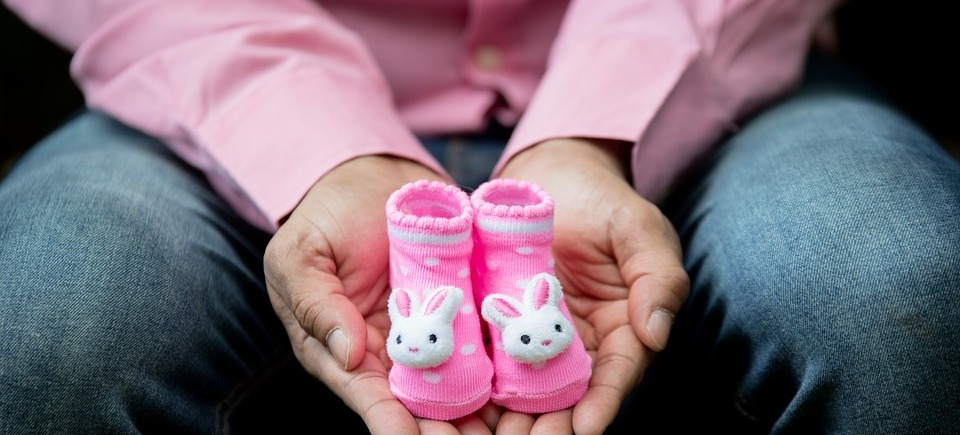Hopefully that clears a few things up. Remember the best way to help your baby is to be as positive as possible, do some gentle exercise and put your feet up.
You have the positive test. You are pregnant.
If you have been trying to get pregnant you might have a whole range of emotions right now. Mostly ‘Oh sh*t’, lots of excitement, some apprehension and possibly fear and anxiety. If you have not been trying for children you may have some thinking to do after the shock has worn off.

First things first, if you haven’t been taking it before, start taking folic acid now even if this is not a planned pregnancy and you’re not sure if you’ll continue with it. It’s cheap as chips from the Supermarket and is really important if you change your mind that you have been taking it for foetal growth. Pregnancy vitamins are another thing to consider. While you can get branded ones (as always, cheaper on Amazon) the supermarket own are just as good and might even be better as some branded ones have a higher iron content and can increase pregnancy morning sickness and nausea.
Also drop the booze. If you went wild at Janet’s Hen do last week and are now wracked with guilt as you were actually pregnant, don’t worry. The foetus is living off the egg sack for now and the placenta won’t get going until 8 weeks or so. But put the gin down going forward. Also stop smoking. Now. Last week. If you need help stopping call your GP asap. Watch your caffeine intake (high caffeine intake has been linked to miscarriage but one or two teas and coffees won’t hurt) and also be a little wary of any extreme exercise if you’re not used to it and go gently for now. If you don’t regularly practise steer off yoga for a few weeks and always let your class teacher or PT know you’re pregnant before starting a class.

So called ‘Early Pregnancy symptoms’ will mimic pre-menstrual ones, but you might notice you still have sore boobs and some cramping after your pregnancy has been confirmed. It’s totally normal. I remember getting fitted for my first pregnancy bra at only 8 weeks as they were so sore.
Medical Appointments
Whether your pregnancy was planned or not you will usually now make an appointment with your GP. They will give you your all-important pregnancy notes (all trusts have different colours) which you need to take with you EVERYWHERE. Mine went with us to Paris, Amsterdam and France. They were very well travelled notes. The GP will book you in for an appointment with your midwife for around 8-10 weeks and will also sometimes book in your 12 week scan.

If you do not want to continue with the pregnancy your GP will be able to give advice on how to go about getting an abortion appointment. Please see here for more information on this.
If you have a history of repeat miscarriages you may be given an early scan to reassure and check for viability at around 6 weeks. After my three miscarriages my amazing consultant had me in every 2 weeks so I could ‘check in’ with the baby which helped my anxiety hugely.
When to tell everyone
It’s an odd period of anti-climax as you really want to tell people but often feel you need to wait until the 12 week scan has confirmed the pregnancy. I cannot stress enough that this is 100% up to you. There are no rules. If you want to tell the world as soon as those lines come up then do so. Some people tell close friends and family and then save formal announcements for after the 12 or 20 week scans. It’s all good!
Many people will book a private scan in this time. While I do understand why, I would also apply caution. Private scans are a reassurance but are also a commercial concern. If there is a problem or your baby has not grown past a certain point (or there are other issues) these companies do not equip staff with the time for proper comfort and they are often unable to offer or refer to the right NHS care pathway. If you do go for one just please be aware of this.
If you work in a highly physical job (like the police force or in a warehouse/supermarket) you may want to tell your line manager earlier so that they can start correct risk assessments or relive you of certain duties. You are not legally required to tell your place of work however until 15 weeks before your due date so you have plenty of time to get used to the idea before you tell anyone else.

The main issue people have is disguising things if they want to wait until 12 weeks. I won’t lie, even people with few symptoms will feel a little tireder and maybe a bit bloated, and for some throwing up 15 times a day is a regular occurrence and getting out of bed is impossible. Everyone is different. The hardest thing to disguise is usually the booze or coffee factor. If you are used to being out every Saturday tearing up the dance floor with a vodka in hand (or like me are the one knocking back the fizz at a wedding while tucking into a rare steak) it’s pretty obvious something is afoot as you are suddenly the one watch staring/yawning at 9pm and drinking soda and limes while dashing to the loo. Hen do’s are the main bane of most people in early pregnancy.
Fear not. There are Ways.
Ways to alleviate suspicion
- “I’m on anti-biotics/painkillers which I can’t drink on” – ok, this one is a little easy to rumble but a UTI or Ear infection is pretty easy to fake (although don’t do this with anyone medical as you’ll be totally rumbled). You can drink on most anti-biotics and painkillers but NOT on metronidazole or tinidazole so just say you’re on them. Painkiller wise, dihydrocodeine, gabapentin and tramadol are all moderate strength painkillers you shouldn’t drink on but they are also what the NHS call ‘controlled drugs’ so you do need to be in a decent amount of pain to have been prescribed them. It really depends on your belief in your acting skills.
- “I’m doing a detox” – There is no scientific evidence that a detox works. In fact it’s a load of tosh. But for now, you’re detoxing! Yes, you’re giving up booze, caffeine and red meat. Just go with it for a few weeks.
- “I’m a diet” – You’re fabulous and you know it, but just say you’re in a diet. Alcohol is high in sugars so is generally the first one to go out of the window during a diet. Caffeine you can always argue the milk is calorific.
- “I feel like I’m drinking too much at the moment” – If you’re a booze hound this will sound suspicious but you can back it up with what LOOKS like a G&T and is actually just tonic or a non-alcoholic beer in a glass (seriously you’d never know the difference).
- “It’s none of your business” – Actually I like this one. They will be suspicious but honestly, that is their issue not yours. It will also shut anyone down. Just practise it now, go on. If they are rude enough to ask then fire it at them. None of your business. Go away.
Your first Midwife Appointment
Your first booking in appointment usually lasts an hour. You’ll be asked your stats (weight/height) and whether you have any pre-existing conditions such as diabetes, previous births or pregnancies or mental health which might affect your pregnancy pathway. You’ll also be asked confidentially if you are suffering from domestic abuse. This is a good time to speak to someone if you’re worried about your home life and whether you’re in a safe environment. She will ask you a variety of lifestyle questions, organise your scan with you and give you some advice about going forward.
Think of this as a ‘getting to know you’ meeting and an introduction into the (sometimes) complicated world of ant-natal care. Better Births (set up by the NHS) is now trying to increase continuity of care for women in pregnancy, so they will attempt to have all appointments going forward with your named midwife or one of their team. You can also speak to your local Maternity Voices Partnership who will be able to help sign post you to more help.
Your midwife will usually give you an anti-natal pathway based on your history. If you have diabetes or have a history of gestational diabetes, have suffered a late loss or a recurrent loss, are expecting multiples or are obese, you may be put in the ‘high risk’ or ‘obstetric led’ category. This means you are unlikely to have a midwife led birth (you will still be delivered by a midwife but you’ll be attending obstetric appointments as well and will have an obstetrician on hand supervising your birth) and will generally be asked to come to delivery suite when you give birth. Don’t worry however, this can change and you will still be able to have the birth you want, just within tighter boundaries and guidelines.
I would also say, don’t worry about making these decisions now. Plenty of time to make them from 30 weeks or so and nothing needs to be set in stone this early. Remember, you are the driving force for your birth experience.
Anxiety
It is an anxious time in your life and it is sometimes easy for this to overwhelm you, especially if you have had losses or an abortion in the past and you’re worried this will affect your pregnancy or birth. Firstly, it’s totally understandable. Secondly, you are entitled and encouraged to get help. GPs can recommend you to Talking Space or there are many local private charities who offer support to families. Midwives are now very aware of the dangers and long term effects of peri-natal depression (depression through pregnancy) and will know who the best person for you to speak to is. Take it from someone who has lived it, it won’t go away and it is better to seek help now than when you’re sleep deprived with a one year old.

Hopefully that clears a few things up. Remember the best way to help your baby is to be as positive as possible, do some gentle exercise and put your feet up.

